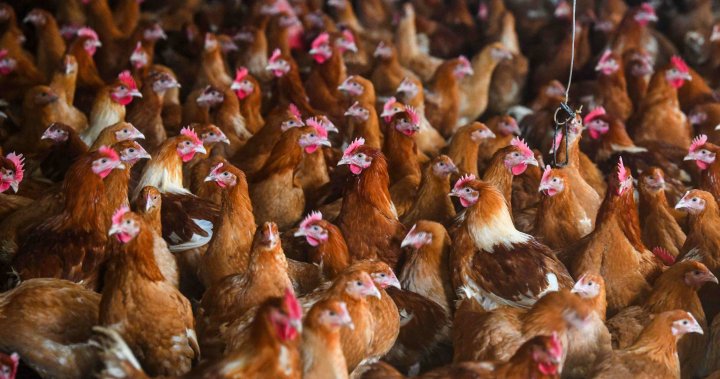
Avian flu puts pressure on producers, consumers
Global News
Outbreaks in commercial bird facilities in Canada most often occur in spring and fall when migratory birds carrying the disease come into contact with poultry.
Harley Siemens was traveling to Calgary when he got bad news from his egg farm in Manitoba.
“I got the call that there may be something wrong,” he said.
Two and a half days later, birds in his barn tested positive for avian influenza.
“My heart sank,” Siemens said. “It was not a very good day.”
As director of Manitoba Egg Farmers, he knew the long and involved process that was about to follow.
Access to the farm would be monitored in an effort to prevent the disease from spreading to nearby farms. The Canadian Food Inspection Agency (CFIA) would come to the barn, culling and disposing of all the birds inside. Then, they’d oversee the barn’s disinfection.
The job took about two months, which Siemens says is in part due to the CFIA responding to many positive avian flu cases this fall in Manitoba and across Canada.
Avian influenza, sometimes called bird flu, is a virus that infects birds and on rare occasion, humans.













